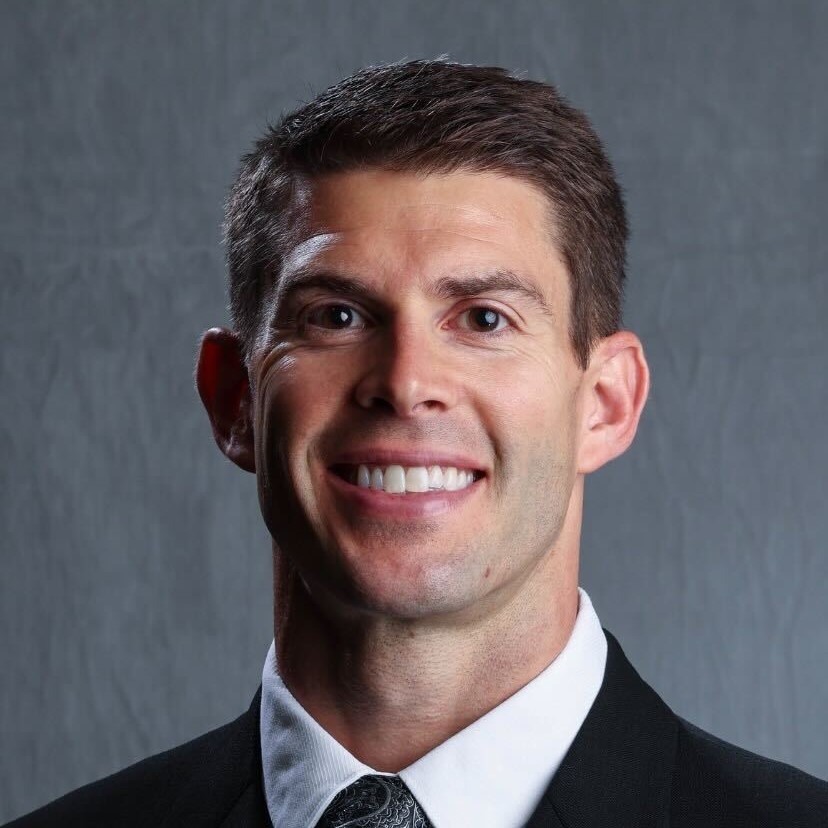How can coaches and sport scientists best use data to their advantage?
There is no doubt sport science is here to stay, but how can sport scientists and coaches best understand data collection so they seamlessly align and accomplish what they set out to do?
Contents of Research Review
- Background & Objective
- What They Did
- What They Found
- Practical Takeaways
- Reviewer’s Comments
- About the Reviewer
- Comments

Original study
Rauff, E. L., Herman, A., Berninger, D., Machak, S., & Shultz, S. P. (2022). Using sport science data in collegiate athletics: Coaches’ perspectives. International Journal of Sports Science & Coaching, 17479541211065146.
Click here for abstract
Background & Objective
Athlete monitoring strategies, advancements in technology, and simply the research on the human body is more prevalent than ever in the world of sport and athlete development. These opportunities have drastically evolved the field of ‘sport science’, which aims to provide feedback, direction, and support for performance enhancement and athlete management during training and competition. This area has grown so rapidly that it has created a disconnect between the science-based or data-driven opportunities and the practical execution by coaches and athletes on a realistic and daily basis.
There is no doubt sport science is here to stay, but it is going to take some teamwork from both sport scientists and coaches to best understand how to effectively incorporate these methods of data collection, so they seamlessly align and accomplish what they set out to do (i.e. inform coaches, athletes and guide training).
Currently, understanding of how coaches at the NCAA level perceive and approach sport science is limited. Therefore, the aim of this research was to identify widespread themes in how coaches across various sports at a NCAA Division 1 institution handled sport science within their respective programs.
What They Did
A total of 13 coaches (age 40±8 yr) at a NCAA Division 1 institution were divided into four focus groups. A member of the research team promoted conversation with five specific questions:
“… specific ways that your team would benefit from knowledge gained from collecting data?”
“… specific performance questions you would like answered when it comes to your team?”
“… heard of other university teams in your sport that have successfully used performance data?
“What measures or methods were used…?”
“… throughout the season, what specific questions would you want to see supported by the data?”
“How do you think your team would use the data …?”
“… any concerns about collecting data on your team?”
Coaches from 12 men’s and women’s teams (e.g. baseball, basketball, soccer, softball, rowing, volleyball, golf, cross country, track and field, and swimming) were represented, as well as the head strength and conditioning coach for all teams. The focus group conversation lasted about 40 minutes on average and were recorded for thematic analysis, in which key concepts were identified based on similarity and frequency of mention from the coaches.
Results were summarised based on each question and the primary beliefs provided.
What They Found
Coaches believed collecting data was helpful in tracking an athlete’s performance progress over time and using this information to potentially modify training.
Coaches believed a daily assessment of readiness (e.g. fatigue, recovery, mental state) and sleep and nutrition behaviours was necessary in an effort to understand the athlete on and off the field, as well as a biomechanical analysis.
Coaches believed that data collection would offer confidence for a coach and their respective training methods.
Time-related strategies and requirements, as well as effectiveness, were the two areas that coaches had the greatest concern about regarding data collection and the realistic opportunity to be implemented.
Practical Takeaways
The combination of both objective (i.e. measurements without opinion or judgement) and subjective (i.e. based on perspective of an individual) measures can be used to make training adjustments (e.g. reduced volume or intensity of a session) if signs of fatigue are present. Having athletes rate their fatigue subjectively, combined with an external performance measure such as 10m acceleration time, adds validity to their report and further encouragement to reduce loads.
Tracking data (e.g. session rating of perceived exertion and/or total distance ran) can help coaches optimise their microcycle layout for a competition week – helping ensure that workloads are appropriate during the week and readiness is maximised on gameday. Coaches should allow for recovery following a match with reduced workloads, dosing in workloads at opportune times during the days leading up to a competition, and allowing time (e.g. 1-2 days) for recovery prior to a match.
Coaches can use monitoring data to affirm their decisions for training prescription (e.g. volume, intensity, frequency, duration, etc.) – keeping record of this information will help support positive measures of athlete readiness. If athlete readiness is poor, coaches can look back to the workloads they prescribed and make adjustments, if necessary.
Coaches should select performance assessments based on important performance qualities needed for success (i.e. key performance indicators). For example, if the ability to accelerate to top speed is important to success in the sport (e.g. baseball, basketball, soccer), coaches should assess acceleration ability (e.g. 20m sprint time), as this is a test that can continuously be measured throughout the year without concern of it negatively impacting performance.
Appreciating an athlete’s perception, especially as it relates to elevated levels of stress or anxiety, is important for a coach, as these can be signs of maladaptation (see HERE), leading to poor performance or increased injury risk. Coaches can provide athletes with a quick and simple electronic questionnaire, offering athletes the opportunity to rate their stress or anxiety level on a 1-5 scale. This should be done consistently (3-4x per week), with a shared understanding of what each number represents (e.g. 1 being severe stress), with follow up from the coaches when needed.
Athlete readiness is a complex interaction of biopsychosocial influences – coaches should avoid putting too much emphasis on one metric (e.g. vertical jump height) without appreciating other areas as it relates to stress, aerobic capacity, or change of direction ability. Coaches should collect multiple performance variables for a more thorough understanding and appreciation of the athlete and their performance potential.
It is important coaches do not fall into the trap of always resorting to doing less and undertraining. Coaches should aim to promote resilience rather than fragility, understanding that fatigue, soreness, and performance decrements happen at times, but to continue to instil trust and commitment to the training process, as those periods can lead to improvements.
Teamwork (e.g. coaches, scientists, specialists, etc.) and collaboration is vital for success. No coach should aim to run a program by themselves, but should lean on others for support, direction, and involvement. Tap into resources of other professionals and specialists (e.g. researchers, professors, dietitians, biomechanists, etc.) for consultation and education.
From a training perspective, when working with athletes, it is important to equip them with the necessary skills to move well, think, and operate more effectively in competition. Coaches should find a good balance of emphasis on performance, health, safety, and longevity for the best overall development for athletes they work with.
The important thing to remember with data collection is that strategies must be realistic (e.g. cost- and time-effective). Whatever approaches are decided have to fit and flow towards the ultimate goal of improving performance, reducing injury risk, and actionable feedback. Coaches must be judicious in selecting what works best for their program, asking for input from support staff and athletes.
Coaches can easily control the workload prescribed, but it is important to also keep a pulse on nutrition and sleep habits to support athlete recovery. Assessments initially through questionnaires can be a great starting point for this to identify those in need, with follow-ups, education, and consultation. Remember the goal of these is not aiming to control the athlete, but helping improve health, performance, and recovery (see HERE).
When presenting data to a coach it needs to be simple, easily understood, and actionable. Make sure the data you are collecting is helping to answer the coach’s question. Ensure the time and efforts you are putting toward data collection and presentation are meaningful and understood.
When collecting data from athletes, it is important to involve them in the process, share it with them, explain why you are taking it, how it is going to help, and never make them feel like test subjects. This will help increase buy-in and motivation from the athletes.
Coaches should avoid body composition assessments, but rather focus on objective performance variables and educating athletes on supportive skills related to nutrition, sleep, and stress management – body composition typically takes care of itself from a foundation of sound psychophysiological practice.
As a coach, it is critical to stay informed as a professional with advancements in the field of science and research so you can help educate the other coaches and athletes you work with. Reading articles like this, attending conferences, and reaching out to other professionals is a great starting point.
Cody Roberts’ Comments
“The important thing to remember with data collection and monitoring is that ‘optimal’ is not the goal or reality, but rather finding what is feasible based on consistency, opportunity, and effectiveness. When making decisions on what data to commit to collecting, ask yourself: Is this information helpful and actionable? Am I able to collect it frequently through the weeks and months? Does it flow seamlessly with our day-to-day operation and positively influence the training process?”
“Data is feedback to training prescriptions and represents the athletes’ response. Coaches must continue to appreciate the process as it relates to biopsychosocial influences an athlete goes through. In the end, data is simply a compass, not a step-by-step guide on what to do and how to do it.
“Implementing monitoring is not a ‘one-size-fits-all’ approach, but rather focusing on what is practical and useful is most important. Even the latest and greatest technology has limits, but things can and will continue to improve if conversations between coaches, scientists, and developers continue.”
Want to learn more?
Then check these out…
Watch this video
Read this article
Read this infographic
Want more research reviews like this?
Every coach understands the importance of staying up-to-date with the latest sports performance research like this, but none have the time, energy, or even enjoys spending hours upon hours searching through PubMed and other academic journals. Instead, your precious time is better-spent coaching, programming, and managing all the other more important aspects of your job.
The solution…
The Performance Digest
The Performance Digest is a monthly summary of the latest sports performance research reviewed by our team of hand-selected experts. We sift through the 1,000+ studies published in the realms of sports performance every, single month and review only those which are important to you. Each monthly issues contains 15 research reviews in all of the following disciplines:
Coaching Science
Strength & Conditioning
Technology & Monitoring
Fatigue & Recovery
Youth Development
Nutrition
Injury Prevention & Rehab
This comprehensive topic base ensures you’re constantly expanding your knowledge and accelerating your career as quickly as humanly possible. The reviews are also hyper-focused, 1-page summaries, meaning there’s no jargon or wasted time. We cut right to the chase and tell you what you need to know so you can get back to coaching.
Join the thousands of other coaches who read it every, single month. Click here to get instant access for free…

Cody Roberts
Cody has been a strength and conditioning coach within NCAA Division I sports since 2008. He currently works in Olympic sports at the University of Iowa. He holds a Masters degree in Exercise Science from the University of Kansas (‘10). A former collegiate discus and hammer thrower (University of Kansas ‘07), Cody has also served as an adjunct professor within the Health & Human Physiology department at Iowa, as well a written over 200 research reviews for the Performance Digest since joining the Science for Sport team in 2019.
Cody is a Certified Strength and Conditioning Specialist (CSCS) through the National Strength and Conditioning Association, a Strength & Conditioning Coach Certified (SCCC) through the Collegiate Strength and Conditioning Coaches Association, and a USAW Certified Sport Performance Coach from USA Weightlifting.
The entire psychophysiological process of coaching and athletic development is what drives Cody to learn and engage others daily to best serve and develop the athletes he works with. In his role, he has numerous resources at his disposal (e.g. GPS, force plates, tensiomyography, and other testing/monitoring tools). His experience and application of these tools, implementing consistent and sustainable monitoring strategies, make him an excellent resource for all things technology and monitoring. Aiming to maximize the quest for optimal performance through a holistic and scientific approach.
More content by Cody


